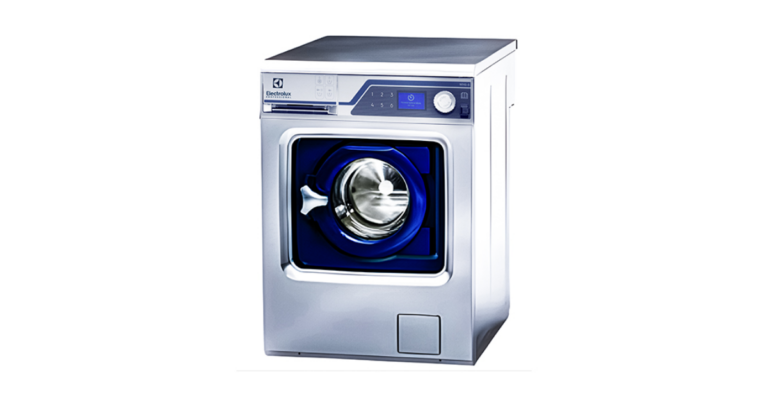Apostille Charlotte North Carolina NC: A Complete Guide to Document Legalization
When it comes to using official documents overseas, obtaining an Apostille Charlotte North Carolina NC is an essential process. Whether you are preparing to work abroad, studying in a foreign institution, expanding your business internationally, or dealing with legal documentation overseas, the apostille ensures your paperwork is recognized and accepted by other countries that are members of the Hague Apostille Convention.
This guide explores what an apostille is, why it is important, which documents require it, and how to obtain one in North Carolina—especially if you live in or around Charlotte.
Understanding What an Apostille Is
An apostille is a form of authentication issued by a designated authority that verifies the authenticity of signatures, stamps, and seals on official documents. It doesn’t verify the content of the document itself but rather confirms that the document is legitimate and properly executed.
The Apostille Convention, also known as the Hague Convention of 1961, simplified the process of document legalization among member countries. Before this treaty, individuals had to go through complex and time-consuming embassy or consulate legalizations. With the apostille system, once a document is authenticated by the issuing country’s competent authority, it is automatically recognized by all other member countries.
In North Carolina, the Secretary of State’s Office is responsible for issuing apostilles. The office ensures that the notary, registrar, or official who signed the document is duly authorized and that the seal or signature matches official records.
Why an Apostille Is Important
The apostille serves as a bridge of trust between countries. Without it, foreign authorities might reject your documents, resulting in delays, denied applications, or legal complications.
Here are some common situations where an apostille is required:
-
Immigration and visa applications: When submitting birth or marriage certificates abroad.
-
Education: Students applying to universities outside the U.S. often need apostilled transcripts or diplomas.
-
Employment: Employers abroad may request authenticated professional certifications or background checks.
-
Business: Companies expanding internationally may need apostilled corporate records or powers of attorney.
-
Legal matters: Apostilles may be required for court documents, adoptions, or property transactions overseas.
If your document originates in North Carolina and will be used in a foreign country that is part of the Hague Convention, you must go through the apostille process.
Documents That Require an Apostille
Different categories of documents are eligible for apostille in North Carolina. These include:
1. Personal Documents
-
Birth, marriage, or death certificates
-
Divorce decrees
-
Adoption papers
-
Police background checks
-
Medical certificates
2. Educational Documents
-
High school or college diplomas
-
Academic transcripts
-
Teaching certifications
-
Letters of enrollment or graduation
3. Business Documents
-
Articles of incorporation
-
Certificates of good standing
-
Corporate resolutions
-
Contracts and agreements
-
Power of attorney documents
4. Legal or Court Documents
-
Judgments
-
Affidavits
-
Notarized statements
-
Court orders
It is important to ensure that the documents are properly signed, sealed, and notarized before submission for apostille.
The Apostille Process in Charlotte, North Carolina
If you live in or around Charlotte, obtaining an apostille is straightforward when you follow the right steps.
Step 1: Prepare Your Document
The document must be an original or a certified copy issued by the appropriate authority. If it is a notarized document, ensure that the notary public is registered in North Carolina.
Step 2: Verify the Signature or Seal
Check that your document bears a valid signature or official seal. The North Carolina Secretary of State can only issue an apostille if the signature or seal belongs to a recognized official or notary.
Step 3: Fill Out the Request Form
Include a written request stating that you need an apostille and specify the destination country where the document will be used. Mentioning the country is crucial, as the certification format differs for Hague and non-Hague nations.
Step 4: Submit the Document
Send your document, along with the completed form and the applicable fee, to the North Carolina Secretary of State’s Authentication Division. You can mail your request or submit it in person if you prefer faster processing.
Step 5: Payment and Processing
The fee for obtaining an apostille in North Carolina is typically modest and charged per document. Processing times depend on whether you apply by mail or in person, but most requests are completed within a few business days.
Step 6: Receive Your Apostilled Document
Once processed, your document will be returned with an attached apostille certificate, confirming that it has been authenticated and can now be used abroad.
Tips for a Smooth Apostille Process
To avoid unnecessary delays or rejections, consider these useful tips:
-
Use original or certified copies: Photocopies will not be accepted unless notarized as true copies by a North Carolina notary public.
-
Check notary details: Ensure the notary’s commission is active and the seal is clear and legible.
-
Specify the destination country: Apostilles are formatted differently for Hague and non-Hague countries.
-
Include contact information: Add your phone number or email in case clarification is needed.
-
Use a prepaid return envelope: This speeds up the return of your documents.
-
Allow processing time: Plan ahead, especially if your documents are needed for immigration or business purposes.
Common Mistakes to Avoid
People often make small errors that can delay their apostille requests. Here are the most common pitfalls:
-
Submitting documents that were not notarized or certified in North Carolina
-
Forgetting to include the fee or providing incorrect payment details
-
Sending photocopies instead of originals or certified copies
-
Missing the destination country information
-
Failing to provide a return envelope for mailed requests
-
Submitting outdated documents with expired seals or signatures
By double-checking your submission, you can ensure your apostille request is processed efficiently and without complications.
Who Can Help With the Apostille Process in Charlotte
While you can handle the apostille process on your own, many individuals and businesses in Charlotte rely on professional notary and apostille service providers. These professionals ensure your documents are properly prepared, notarized, and submitted to the Secretary of State’s office.
Professional assistance can be especially helpful if you are:
-
Dealing with multiple documents at once
-
Working under tight deadlines
-
Unsure about notarization requirements
-
Living outside of Raleigh and want to avoid travel
A reliable apostille service can save you time and prevent costly mistakes by managing every step of the authentication process on your behalf.
Apostille vs. Authentication: What’s the Difference?
Sometimes, documents are destined for countries that are not members of the Hague Apostille Convention. In such cases, the document cannot receive an apostille. Instead, it undergoes an authentication process.
The authentication process is similar to an apostille but includes an additional step once the Secretary of State verifies the document, it must also be legalized by the foreign country’s embassy or consulate. This ensures recognition in non-Hague nations.
Therefore, when requesting an apostille, always confirm whether your destination country is a member of the Hague Convention.
Why Charlotte Residents Frequently Need Apostilles
Charlotte is one of the fastest-growing metropolitan areas in North Carolina, attracting professionals, students, and businesses from around the world. As a result, many residents find themselves needing apostilles for various international purposes:
-
Students heading abroad for study programs
-
Professionals relocating for overseas employment
-
Entrepreneurs expanding into foreign markets
-
Families involved in international adoptions
-
Investors handling real estate or financial transactions abroad
Whatever the purpose, having your documents properly apostilled ensures they meet international standards and are recognized without further verification.
Conclusion
Obtaining an Apostille Charlotte North Carolina NC is a crucial step in ensuring that your documents are accepted for use in other countries. Whether it’s a birth certificate, business registration, or educational record, an apostille confirms that your document is authentic and valid for international use.
By understanding the process preparing your documents correctly, submitting them to the North Carolina Secretary of State, and avoiding common mistakes you can make the apostille process simple and stress-free.
If you need to use your North Carolina documents abroad, start early and ensure every requirement is met. With the proper apostille in place, your paperwork will be recognized internationally, allowing you to focus on your goals, whether they involve work, study, or personal matters overseas.







